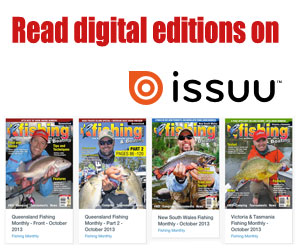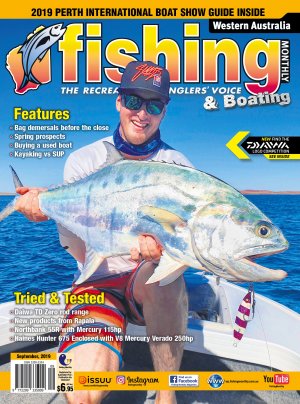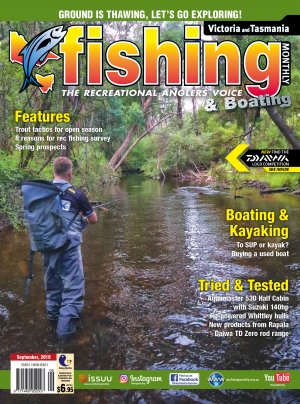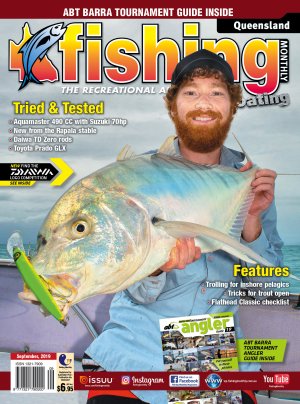NOT SINCE that old bloke camped by the billabong have swags been more popular than they are today.
A typically Australian product, swags used by campers from jackaroos to anglers. Even business executives use them for that weekend away. In some circumstances, a swag can be the only convenient way to get a good night’s sleep when you are in the Outback. There are also a myriad riverbanks and streams that are just calling out to be fished, so sleeping under the stars is quite often the best option.
The main criteria for a swag are that it should be waterproof, comfortable and easy to use. While there are many styles available, the idea is still the same: A tough canvas bag with a comfortable mattress and maybe even some insect protection. Just lay the swag on the ground and hop in.
When packing your swag it is a good idea to lay out your clothes first, then place your sleeping bag on top before rolling the swag. This creates a soft layer for sleeping and also ‘irons’ the clothes at the same time. The swag is probably the ideal solution for that overnight fishing trip, whether staying on the boat or on land. They even make excellent seats when rolled up.
Australian made swags are the clearly the best around as they are made to suit Australian conditions.
Down Under Swags make one of the best ranges of Aussie swags. The cotton canvas is plain weave and heavily re-enforced TearCheck, also known as Ripstop. It is exceptionally light but is the toughest on the market. Fully proofed, the canvas is 17oz and the mesh is super-strong, sandfly-proof Finetex.
Styles vary according to taste, with prices ranging from $200 for a single to $600 for a double. The most popular is the king-size Goanna, which sells for around $380.
There are also many other Australian-made swags on the market, as well as a few imported varieties. Quality of canvas and denier of mesh all need to be checked before purchasing as this can make the difference between a good camp and a great one. The imported models don’t have the same quality canvas and the inner mattresses are not quite as comfortable as the local items. The mesh doesn’t appear to be as strong and the weave is a lot more open. Sandflies may get in. Prices range from $99 to $269 and are probably ideal for those who are not sure how often they will use a swag. However a quality purchase should last a lifetime.
Once you have purchased your swag take note of how it is rolled before you unroll it. If you understand how it comes rolled up, then when you have to re-roll it, the job won’t be too daunting.
When setting up your swag, make sure that if there is any wind that the foot of the swag is pointing in that direction. It keeps the swag streamlined against the wind.
All swags suffer from condensation under adverse conditions and in this respect they are no different from any other enclosed area. An important feature of swags is that the cotton canvas has the ability to breathe. The proofing process is strictly controlled so that the pores do not become clogged, allowing water vapour to escape from the inside but preventing rain droplets from the outside.
Because the swag is a confined sleeping space it needs to be aired regularly. This ensures that it remains dry and doesn’t develop mould. As with all camping equipment, if you take great care with it while it is being used and then stored it correctly, it will last a long time.
Overall, a swag is a fantastic addition to the outdoor person’s equipment. You won’t have to put up a tent, blow up a mattress or hammer in pegs. Just throw your swag on the ground, unroll and hop in.
Reads: 1658



